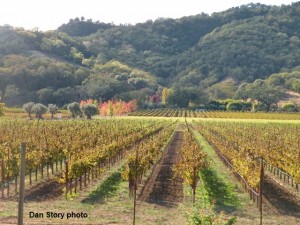“Does Subdue and Dominion Mean Freedom to Exploit Nature—or Stewardship?”
The first step toward understanding the meaning of “subdue” and “dominion” in Genesis 1:28 (KJV) is to review a basic principle of hermeneutics. Hermeneutics refers to interpretative techniques that are applied to literary texts, in particular the Bible. Although several important principles are associated with proper hermeneutics, one in particular is relevant to understanding God’s intention when He instructed the human race to subdue the earth and have dominion in nature.
This fundamental rule of biblical hermeneutics is to interpret any passage within context of surrounding passages as well as within context of other passages that speak on the same topic. This is crucial because a single passage in the Bible usually doesn’t provide the full meaning or total teaching on a particular subject. Many doctrines in Scripture require a systematic study of related passages. The doctrine of the Trinity is a classic example.
The closest related passages to Genesis 1:27–28 are found in Genesis chapter two. This chapter provides additional details about the creation of the first man and woman and the physical environmental in which they lived. This article will examine the key passages in Genesis two that are related to Genesis 1:27–28.
Genesis 2:7–8 reveals that God created a garden in Eden and placed Adam, the first man, in it. Genesis 2:15 adds that Adam was instructed to “take care of” the Garden (i.e. to cultivate and manage it). Only later, after these events occurred, did God create Eve, the first woman (vv. 21–22). In light of this chronology, it’s important to understand that God’s instructions to subdue the earth and to have dominion over nature were given after Eve was created and while the couple was living in the Garden of Eden. How do we know this? Because the so-called subdue and dominion instructions were given to both Adam and Eve (Gen. 1:27–28). Thus, since Eve was created after Adam was placed in the Garden—and before their banishment from Eden (Genesis chapter 3)—the “subdue” and “dominion” instructions had to have been given while the couple resided in the Garden.
Why is this important? Because the harsh sounding words subdue and dominion in Genesis 1:28 are softened and qualified due to the Garden setting where the instructions were given. The natural environment in which Adam and Eve lived (before the Fall) was a paradise. It was free of thorns, thistles, and ferocious animals. It’s preposterous to think that the injunction to subdue the earth and to have dominion over nature had anything to do with battling or destroying nature. There was nothing to conquer or subdue in the Garden of Eden! Although the first man was instructed to work the Garden, fulfilling Adam and Eve’s nutritional and other physical needs in the Garden would not have necessitated toil and hardship. The couple could effortlessly select their food from the abundant plant life surrounding them (Genesis 2:9, 16). Whatever subdue and dominion mean in Genesis 1:28, they do not carry a despotic connotation or suggest the freedom to exploit nature.
People who claim that Genesis 1:28 provides a license from God to exploit nature solely for human pleasure fail to heed the cardinal hermeneutical principle of interpreting a single passage within context of related passages as well as the whole biblical teaching on the topic. Critics select Genesis 1:28 (KJV) as a primary proof-text and disregard the host of other passages that reveal what God actually means by His instructions to mankind to subdue the earth and to have dominion over nature. (Critics often quote the King James Version because it uses “dominion” rather than the more appropriate word “rule,” which replaces dominion in the NAS, NIV, and other modern translations.)
Dominion in the sense of absolute authority is only the prerogative of God—whether it concerns nature or anything else. People are custodians; they do not own the earth. So subdue and dominion as they relate to mankind’s involvement with nature does not mean that people have the right to exploit and despoil God’s creation. Rather the words imply that people have a stewardship or caretaker’s role over nature. In my book Should Christians Be Environmentalists? I provide numerous Bible passages that confirm this, as well as quotes from well-known Christian scholars who express the same interpretation of dominion and subdue. In short, the Bible teaches stewardship, not exploitation. In next week’s blog article we’ll investigate our responsibilities as God’s stewards (caretakers) in creation. ©
* The blog articles in this series are adapted from my book Should Christians Be Environmentalists? published by Kregel Publications in 2012. The blog articles do not contain all the chapters, data, quotes, references, or my personal experiences, which the book includes. So for “the rest of the story,” you will need to purchase the book, which is available in both paperback and Kindle. This and the following articles are copyrighted material and may not be reproduced in book or article form. But feel free to send links to these articles to your personal email list, Facebook friends and groups, Twitter followers, or other people who may enjoy them.
